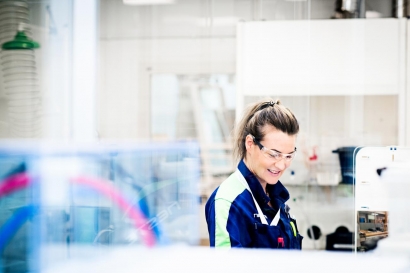
The MultiPLHY project started in early 2020 and since then the conceptual design has been completed while detailed engineering is being finalized. In the next phase, Neste will proceed with the construction works. In addition to Neste and Sunfire, the MultiPLHY consortium partners include CEA, a French public research organization; Paul Wurth, an engineering company and technology provider; ENGIE, a global reference in low-carbon energy and services.
“As part of Neste’s growth strategy we continue to focus on innovation, in which renewable hydrogen and Power-to-X are two of our key development areas. Demonstrating green hydrogen production at our Rotterdam refinery within the MultiPLHY project is one of the initiatives enabling us to further drive the development of new sustainable technologies,” says Lars Peter Lindfors, Senior Vice President of Innovation at Neste.
Demonstrating the high-temperature electrolyzer technology is an important step forward in the field of Power-to-X. In the scope of the project, electrolysis company Sunfire will supply the multi-megawatt electrolyzer based on the innovative SOEC (solid oxide electrolysis cell) technology, operating at high temperatures of 850 °C. Due to the utilization of heat, the high-temperature electrolyzer requires significantly less electricity to produce one kilogram of green hydrogen.
"We look forward to realizing the implementation and commissioning of our SOEC electrolyzer. Together with the strong MultiPLHY consortium, we will demonstrate an innovative solution on how the refining industry can become more sustainable," says Sunfire CEO Nils Aldag.
“Renewable hydrogen is an essential low-emission technology for the decarbonization of industrial processes. Accelerating concrete hydrogen projects, like MultiPLHY, is key to identifying potential disruptors and making this SOEC technology operationally and commercially viable at scale,” says Michèle Azalbert, Managing Director at ENGIE Green Hydrogen.
The MultiPLHY project has received funding from the Fuel Cells and Hydrogen 2 Joint Undertaking under grant agreement No 875123. This Joint Undertaking receives support from the European Union’s Horizon 2020 research and innovation programme, Hydrogen Europe and Hydrogen Europe research.

